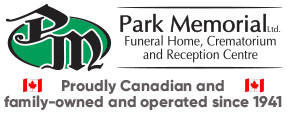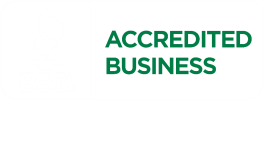Funeral FAQ's
Here are answers to some of the questions we are asked most often.
Questions are always important to clarify and understand any subject, which is why our most
frequently asked questions can be found below, separated by topic and in alphabetical order .
-
What are your business hours?
Monday through Saturday, 8:30am – 5:00pm
Sunday Noon - 5:00pm
The hours above are our regular Edmonton funeral home office hours. Office hours in our rural locations are subject to change, therefore please call prior to visiting us. Please note that our phones are answered (live) 24 hours per day, and that evening services are available as well.
-
What are the benefits of choosing a family-owned funeral home?
There are several reasons why it is beneficial to choose a family-owned funeral home to care for your loved one, starting with the easier ability of a family-owned funeral home to make decisions regarding requests and exceptions to policies and procedures that corporately owned funeral homes might not be able to do. Being that there is less corporate structure to policy and procedure, and that the key decision makers are often part of the leadership team, decisions regarding variations to service and procedures can be made more quickly and with less ‘red tape.’ Finally, our families who serve your family also live in the communities that you live in. Our business builds and supports your community as do our tax dollars and charitable donations.
-
What faiths and cultures do you serve?
"I selected the name Park Memorial at a time when all other funeral homes in Edmonton carried the names of their owners. I wanted to ensure there were no overtones suggesting a preference to serve one religious denomination or a specific ethnic group over another." – Tod Smolyk, Park Memorial Founder
Park Memorial was founded on the value that every life is worthy of being honoured, and that access to compassionate and dignified funeral services should never be restricted by faith, race, or any other basic human factor.
Our team is rich with a variety of expertise in serving many of our local faith communities and the traditions surrounding their funeral practices. Our staff family also represents a variety of faiths, languages, and cultures of their own. We have staff that can speak or write in Polish, Ukrainian, and Portuguese. We also have two team members fully dedicated to serving our Asian community who are multi-lingual in several dialects, and who also have incredible depth of understanding of Asian funeral traditions and practices.
-
Why do I need a funeral director?
Funeral Directors attend college for 2 years in addition to a lengthy apprenticeship and examination to become licensed. To maintain their licensed status, each funeral director and embalmer must complete a certain amount of certification training each year. This training and licensure ensure that your family will be guided within the framework of all federal and provincial laws and mandates that govern the funeral profession and will be given factual answers to all your questions.
For more information on the role of a funeral director, please click here to access our blog post.
-
Where do I get a death certificate? What is the difference between a Funeral Director Statement of Death and an Official Statement of Death?
Your funeral director will provide you with as many Funeral Director Statements of Death as you require for closing accounts and applying for death benefits, etc. Some investments and life insurance policies require an Official Statement of Death from a registries office. Your funeral director will apply for this on your behalf through Alberta Registries, pick it up when it is ready, and have it available for you at the funeral home. The fee for this document will be added to your account.
-
What does it mean when you say that Park Memorial is a full-service funeral home?
As a full-service funeral home, not only do we offer all facets of the services required for all kinds of farewell ceremonies, we also offer an inclusive professional services model. What this means to the families that we serve:
- We will provide as many Funeral Director Statements of Death as you need. If you discover that you need additional statements in a year? They are all included at no additional cost.
- No overtime fees nor mileage fees on transfers from any location within Edmonton, or from any location within 25km of the closest rural location to you.
- We fully support the entire process of bereavement, even beyond the funeral. We will help with end-of-life documents and the filing of them, we are available by telephone 24/7 including weekends, and even months or years after we have served your family if you need further information or support.
- We will assist with writing your loved one’s obituary, no matter if or where it is being posted. Our website also features a customizable Book of Memories for each person that we care for where the obituary, condolences, photos, and stories can be posted and shared.
-
Will my funeral director help me complete and file the end-of-life documents that are required after the funeral for estate and probate for my loved one? Is there a cost for this service?
Our team of funeral directors not only understand the aspects of grief that are heightened by the overwhelm of so many documents and forms, they also understand fully the financial, legal, and risk management aspects of why completing these documents in a timely manner as possible can be critical, and they are here to help. We also have staff members who are certified Commissioners of Oaths for those forms and documents requiring their services. Document support is included in our full-service model of care, meaning that there is no additional charge for this service.
-
What documents will be completed during the arrangements meeting?
During your funeral arrangements appointment, your funeral director will fill out the following forms and have you sign them:
- CPP (if the deceased was already receiving this benefit, this will serve as CANCELLATION. If not, it will serve as NOTIFICATION)
- Old Age Security (if the deceased was already receiving this benefit, this will serve as CANCELLATION. If not, it will serve as NOTIFICATION)
- CRA (this is notification only)
-
What grief support events does Park Memorial offer?
We are proud to offer an array of large and small-group grief support events on a regular basis. While the pandemic has derailed these events that really depend upon that interactive, in-person experience since early 2019, we are hopeful to return to hosting these events again in 2022, starting in April with Moments with Dr. Wolfelt. To see all of the grief support programming that we offer, please visit our Grief Support Events page.
-
Do I have to be a client of Park Memorial to attend your grief support events?
Our grief support events are open to any member of our community who wishes to attend and gain some grief support, subject to capacity limitations.
-
What happens during a funeral arrangements meeting and how long will it take?
Your funeral director will guide you through everything from Vital Statistics information and forms to setting a ceremony date and time, to making plans for your loved one’s farewell ceremony, to choosing your funeral products. We suggest setting aside two to three hours or more for this process.
-
How many people should come to make funeral arrangements?
Family dynamics differ greatly from family-to-family, causing ‘immediate family’ to frequently include step relations and blended family members. This makes determining who should be present for arrangements difficult. For the sake of the many decisions that need to be made, we suggest having approximately three persons present. Please note that if you are wanting to include *more people so that they feel validated and valued, perhaps having them present for the parts of the arrangements meeting that focus on the obituary and the sharing of stories might be an option.
*Our arrangements offices can accommodate parties of up to three persons for arrangements. If there will be more than three persons, please let us know at the time that your appointment is being booked so that we can allocate an adequate meeting space for your family members.
-
Who can make funeral arrangements?
* Subject to an order of the Court, the right to control the disposition of human remains or cremated remains vests in and devolves on persons in the following order of priority:
(a) the personal representative designated in the will of the deceased;
(b) the spouse or adult interdependent partner of the deceased if the spouse or adult interdependent partner was living with the deceased at the time of death;
(c) an adult child of the deceased;
(d) a parent of the deceased;
(e) a guardian of the deceased under the Adult Guardianship and Trusteeship Act or, if the deceased is a minor, under the Child, Youth and Family Enhancement Act or the Family Law Act;
(f) an adult grandchild of the deceased; (g) an adult brother or sister of the deceased;
(h) an adult nephew or niece of the deceased;
(i) an adult next of kin of the deceased determined on the basis provided by sections 67 and 68 of the Wills and Succession Act;
(j) the Public Trustee;
(k) an adult person having some relationship with the deceased not based on blood ties or affinity;
(l) the Minister of Human Services.
In addition to the person who is legally obligated to make the funeral arrangements, it may be helpful for a couple of other family members to come in order to assist with the decision making process.
*From the Alberta Funeral Services Act - General Regulation (Section 36)
-
We want to personalize my father’s service to incorporate his many commitments to his community. How do we cover this during the arrangements meeting?
Your funeral director will want to hear memories and stories of your loved one, and will ask you the right questions to incorporate personalization into your loved one’s farewell service.
-
Do I need an appointment to make funeral arrangements, or can I just walk in?
We ask that you make an appointment with us so we can ensure a funeral director will be available to give you the time, assistance and attention you will require.
-
Is everything set and decided after a funeral arrangements meeting?
The initial arrangements meeting definitely endeavours to get the majority of big decisions finalized, but it is normal that all of the fine details will require further communication between your family and your funeral director. There is no question that is off base to ask in order to ensure that our team helps you to plan a farewell ceremony that best honours your loved one.
-
How long do we have to plan a funeral?
While most funerals take place three to five days after making funeral arrangements, a family can take as long as they need to plan a loved one’s funeral service. There is no need to rush and no requirement by the funeral home to have a service held within a few days. There are several factors that may contribute, such as:
- Out of Town Family and Friends: often there are people who need to travel from a distance for the funeral. When this is the case, there are options that our funeral professionals can provide: When the family wishes to give everyone visitation time with their loved one, embalming of the body allows for this to occur. The embalming process helps to sanitize and preserve the body so that families can spend as much time with their loved one as they need. Sometimes a visitation and funeral can take place several weeks following the death, due to logistical issues or family circumstances. Burial or cremation would then take place afterward. If cremation will occur and no viewing is desired by out-of-town family and friends, the cremation can take place before the arrival of the guests and the cremated remains can be placed in an urn to be present (if desired) at the funeral service.
- Faith: some faiths have strict customs and traditions for both the timing and the physical care of your loved one following their passing. Our team is trained to assist all faiths and cultures in caring for their loved ones.
- Complexity of the Service: if the service will entail technical aspects such as a video tribute or live streaming, if a large or special venue needs to be rented, or if dignitaries are involved in the service, additional time may be needed to plan the service.
-
Why did I have to sign so many documents for my father’s cremation?
Completing so many documents can seem overwhelming, however as cremation is final and irreversible, this ensures necessary safeguards are in place. These safeguards provide protection for the deceased, the Executor or next of kin, and the funeral home.
Provincial legislation policies require that written instructions and signed permission are obtained for: bringing the deceased into our care, the Medical Examiner and authorized representative’s permission to cremate, removal of pacemakers, proper identification of the deceased, and naming the person who has authority to receive the cremated remains, just to name a few. These documents become part of the deceased’s permanent records with the funeral home.
Requiring your signature on these documents provides security and - we hope - a measure of comfort for you. Ensuring that your loved one is properly identified and respectfully cared for while in the safekeeping of Park Memorial is our highest priority.
-
What happens when someone dies and you cannot afford funeral services?
Planning funeral services following the death of a loved one can be challenging, especially while grieving. When you are the person responsible to pay for the funeral services, and there are no funds in the estate, your funeral director is your resource. They will help identify benefits for which you may be eligible to apply for to ensure that your loved one receives a proper burial or cremation, such as:
- The Canada Pension Plan (CPP) Death Benefit
- CPP Survivor’s Pension and/or Children’s Benefit
- Last Post Fund (Veteran Benefit)
- Alberta Seniors Benefit: Special Needs Assistance
- Workers’ Compensation Board or Union Death Benefits
- Alberta Human Services (AHS) Funeral Benefit
- Assured Income for the Severely Handicapped (AISH) Funeral Benefit
- Fatal Accident Claim (Section B) Benefit
- A Personal Life Insurance Policy
Our funeral directors will assist you with the completion of the application for the Alberta Human Services and AISH death benefit applications, which need to be completed, submitted and authorized prior to setting a funeral date. Most questions arise around the AHS benefit, which exists provincially to ensure deceased persons are given a proper burial or cremation where the estate or responsible survivors are unable to pay for funeral services.
A funeral home that agrees to provide this service must abide by the Agreement terms and conditions and have funeral expenses pre-authorized by an Alberta Human Services representative. Funeral homes, in turn, will provide the basic funeral services and merchandise listed in the agreement at the agreed rate. Eligibility is based on the financial resources available in or to the deceased’s estate, which includes: Canada Pension Plan death benefit; cash or bank accounts; final OAS/GIS or CPP and other pension cheques; property which may be sold or borrowed against to cover funeral costs; Last Post Fund if the deceased was an Armed Forces veteran; debts owed to the estate; Section B insurance benefit if death was caused by an insured motor vehicle; and life insurance policy.
If the combined available resources with applicable cash/liquid asset exemptions are enough to pay for basic funeral costs, Alberta Human Services will not cover the funeral expenses. The income and assets of the responsible survivor are also considered as a potential resource. Alberta Human Services will not pay funeral expenses if the responsible survivor refuses to pay or refuses to provide the information substantiating their inability to pay. And sometimes, Alberta Human Services will only provide a partial payment towards funeral expenses, which means the responsible survivor will be responsible for paying for any cost differences, plus GST.
Our Park Memorial team is committed to ensuring that your loved one’s life is honoured in a way that aligns with your family’s values and to providing support at the time of need and following, with our many after-care events and programs. No family should have to face financial crisis to give their loved one a meaningful funeral service.
-
What is a casket liner / vault and why do I need one?
The vehicles that must drive across the grounds of a cemetery to access burial plots are heavy. Driving across plots where a loved one has been laid to rest is unavoidable and can cause settling and sinking damage to the ground which can, in turn, cause damage to the casket below. Casket liners and vaults are designed to prevent settling damage to the casket, and some offer some degree of water resistance, as well. Most cemeteries require the use of a liner or vault.
-
Are you affiliated with a specific cemetery?
Park Memorial is not affiliated with any particular cemetery. We can work with whichever cemetery you select.
-
How do I choose a cemetery?
We suggest that you research those that are geographically closest to you and take a drive to see them. You will likely get a feel for which landscape and location you prefer.
-
What if I’m not Catholic, but prefer one of the Catholic cemeteries?
You do not have to be Catholic to be buried in a Catholic cemetery; you can choose any cemetery that has space available. Some of the Edmonton City Cemeteries do feature areas that are set aside for different faith denominations, as well.
-
Is embalming a mandatory part of burial?
Embalming is not mandatory for every burial. We recommend embalming when there will be a burial delay and when there is a visitation planned. There are also times when embalming is mandated due to death occuring from Covid or other communicable diseases. Outside of these and any other extraordinary circumstances, embalming is a personal choice.
-
Do I need a casket if my loved one is being cremated?
In Alberta, a rigid container is the minimum standard for cremation. At Park Memorial, our policy is that at minimum a wood container (casket) is required in order to safely and respectfully complete the cremation process. Park Memorial offers several choices of cremation caskets, from basic plywood to more traditional wood grain caskets.
-
Why is cremation so expensive?
Park Memorial is a full-service funeral home. What that means is that there are no hidden or surprise fees on your invoice. We believe in an inclusive level of service that promises that you will have our full support through all of the processes involved in carrying out your loved one’s final wishes. We cannot speak for other funeral homes and their pricing, but you will find that the service that we provide matches the prices we charge.
-
Why did I have to sign so many documents for my father’s cremation?
Completing so many documents can seem overwhelming, however as cremation is final and irreversible, this ensures necessary safeguards are in place. These safeguards provide protection for the deceased, the Executor or next of kin, and the funeral home.
Provincial legislation policies require that written instructions and signed permission are obtained for: bringing the deceased into our care, the Medical Examiner and authorized representative’s permission to cremate, removal of pacemakers, proper identification of the deceased, and naming the person who has authority to receive the cremated remains, just to name a few. These documents become part of the deceased’s permanent records with the funeral home.
Requiring your signature on these documents provides security and - we hope - a measure of comfort for you. Ensuring that your loved one is properly identified and respectfully cared for while in the safekeeping of Park Memorial is our highest priority.
-
How much do cremated remains weigh?
On average, an adult’s cremated remains weigh between 8 to 10 pounds (4.5 kg). The weight and volume of cremated remains is dependent on the size and density of the deceased’s bones.
-
My loved one has died in hospital. What should I do now?
Firstly, take the time that you need with your loved one; there is no rush in taking next steps, so take the time to sit with them, hold their hand, and let the reality of their passing begin to sink in. When you are ready, call our main telephone line. We will have a few questions to ask you: whether you are planning on burial or cremation, whether you would like us to embalm your loved one, and which hospital they are in. We will also ask your permission to bring them into our care and make an appointment for you to come in and make funeral arrangements with one of our funeral directors. We will follow up with an email outlining what you will need to do to prepare for your arrangements meeting and what to expect when you arrive.
-
My loved one has chosen to come home for palliative care in their final days and moments. What do we need to do in advance of their passing?
When the decision is made to bring your palliative loved one home from hospital and care centres, there is one very important document that many people aren’t aware of. There is an Alberta Health Services ‘Expected Death in the Home’ form that the palliative care physician can fill out to assist families in this circumstance. Normally when there is a death in the home, the police must be notified, and the deceased may be released into the care of the Medical Examiner’s Office instead of into the care of the funeral home. This can lead to extra stress following the death, as well as potential funeral delays. Having this document in place allows for the time following the death to be filled with less disruption, less uniformed strangers in attendance, and more control to make choices regarding the time that is spent with their loved one after their passing.
-
What happens when someone dies and you cannot afford funeral services?
Planning funeral services following the death of a loved one can be challenging, especially while grieving. When you are the person responsible to pay for the funeral services, and there are no funds in the estate, your funeral director is your resource. They will help identify benefits for which you may be eligible to apply for to ensure that your loved one receives a proper burial or cremation, such as:
- The Canada Pension Plan (CPP) Death Benefit
- CPP Survivor’s Pension and/or Children’s Benefit
- Last Post Fund (Veteran Benefit)
- Alberta Seniors Benefit: Special Needs Assistance
- Workers’ Compensation Board or Union Death Benefits
- Alberta Human Services (AHS) Funeral Benefit
- Assured Income for the Severely Handicapped (AISH) Funeral Benefit
- Fatal Accident Claim (Section B) Benefit
- A Personal Life Insurance Policy
Our funeral directors will assist you with the completion of the application for the Alberta Human Services and AISH death benefit applications, which need to be completed, submitted and authorized prior to setting a funeral date.
Most questions arise around the AHS benefit, which exists provincially to ensure deceased persons are given a proper burial or cremation where the estate or responsible survivors are unable to pay for funeral services.
A funeral home that agrees to provide this service must abide by the Agreement terms and conditions and have funeral expenses pre-authorized by an Alberta Human Services representative. Funeral homes, in turn, will provide the basic funeral services and merchandise listed in the agreement at the agreed rate.
Eligibility is based on the financial resources available in or to the deceased’s estate, which includes: Canada Pension Plan death benefit; cash or bank accounts; final OAS/GIS or CPP and other pension cheques; property which may be sold or borrowed against to cover funeral costs; Last Post Fund if the deceased was an Armed Forces veteran; debts owed to the estate; Section B insurance benefit if death was caused by an insured motor vehicle; and life insurance policy.
If the combined available resources with applicable cash/liquid asset exemptions are enough to pay for basic funeral costs, Alberta Human Services will not cover the funeral expenses. The income and assets of the responsible survivor are also considered as a potential resource. Alberta Human Services will not pay funeral expenses if the responsible survivor refuses to pay or refuses to provide the information substantiating their inability to pay.
And sometimes, Alberta Human Services will only provide a partial payment towards funeral expenses, which means the responsible survivor will be responsible for paying for any cost differences, plus GST.
Our Park Memorial team is committed to ensuring that your loved one’s life is honoured in a way that aligns with your family’s values and to providing support at the time of need and following, with our many after-care events and programs. No family should have to face financial crisis to give their loved one a meaningful funeral service.
-
Do we need an obituary?
This is a personal decision. While obituaries aren’t mandatory, they do serve a distinct purpose: not only do they share the highlights of our loved one’s life, but they also let our community of friends and family know of their passing. Assistance with obituary writing is a service that Park Memorial includes in our inclusive service model.
-
Do we need to post it in the newspaper?
Placing an obituary in the newspaper is also a personal choice. There is a cost associated with newspaper obituaries; the cost is relative to the length of the obituary and whether you add a photo or not. If you are unsure about this decision, your funeral director can prepare a cost estimate for you so that you can make an informed decision. We also offer each family that we serve a Book of Memories for their loved one. The obituary can also be posted here and shared via email, text, and social media.
-
What should we include?
Traditionally, an obituary includes the person’s date and year of their birth and their passing. It gives a bit of their genealogy, both those family members who pre-decease them, as well as those who are left to grieve their loss. Then follows a summary of their life story and accomplishments, followed by their farewell service details. If you wish for people to make memorial donations in honour of your loved one, that information and the details of the organization that you are supporting can be included. You may choose to include a photo.
These are guidelines only... an obituary can contain anything that is meaningful to your loved one. It can be serious or humourous. Long or short. It can be whatever you create it to be.
-
We are not holding a service until summertime. Should we wait until then to write and post the obituary?
We recommend posting an obituary in the time following the passing, so that not only will people become aware, but they will also have the ability to reach out to the family with their care and compassion. It is also a way to communicate that the service will be happening later in the year. You may wish to re-post the obituary closer to the date of service to further inform and remind those who wish to attend and pay their respects.
-
With my wife in palliative care, I am feeling overwhelmed at the thought of the many people and businesses that will need to be compensated for providing services for her funeral. How can Park Memorial help me keep these all straight and paid on time?
At Park Memorial we understand it can become overwhelming to keep track of each expense for funeral services with many invoices and varied due dates for each of those payments. We also understand there may be additional stress from the unexpected costs for which your family must immediately disburse significant funds.
To help ease this burden for our families, Park Memorial offers the preparation and distribution of cheques for these related third-party services at no additional cost:
Clergy / celebrant honourarium
Musician / soloist / cantor honourarium
Church or hall fee or donation
Catering costs
Flower costs
Cemetery plot purchase and perpetual fee
Grave opening and closing costs
Many families express their appreciation for this service as they are assured that everyone and everything is paid for, in full, on time, and at no additional cost to you, your family or the estate.
Following the funeral ceremony, you will receive our itemized statement providing a complete breakdown of all services provided in the care of your loved one, and the fees associated with them. Payment of this statement is due within 30 days.
When a family requires our services and there is a pre-need contract, no funds are due prior to the ceremony. There are, however, immediate honourariums or payments due for service-related third parties and Park Memorial will, as described above, assist by creating the payments for each of these.
If you feel this would be of benefit to your family, speak with your funeral director about allowing Park Memorial to provide both the administrative and financial supports necessary to ensure all third parties receive timely payment on your behalf. It’s one more way that Park Memorial Cares.
-
What can be included in a preneed contract?
Your preneed contract CAN include any of the following items and services that are provided directly by Park Memorial:
- Transfer service into our care
- Preparation and embalming of body
- Dressing
- All administration services associated with a funeral or memorial ceremony
- Services of the hearse, lead car, and limousines for transportation on the day of the ceremony
- Cremation
- Urn
- Cremation casket or ceremonial casket
- Burial casket
- Vault (Urn or casket)
- Prayer, funeral, and / or memorial ceremony
- Cards / Guest Book
- Funeral Director Statements of Death
The following are NOT included in a preneed contract:
- Clergy / Celebrant / Cantor
- Musicians’ services
- Flowers
- Obituary
- Catering
- Keepsake jewelry
-
Can every funeral home sell a preneed contract?
The Alberta Funeral Services Regulatory Board (AFSRB) issues annual preneed salesperson licenses, which allows those licensed funeral services businesses to offer preneed contracts.
-
Does every funeral home use the same preneed contract?
Funeral homes develop their own preneed contract based on Alberta laws and regulations. Contracts must be approved by the Alberta Funeral Services Regulatory Board (AFSRB) prior to use.
-
What laws protect me when I buy a preneed contract?
Funeral home preneed contract sales are regulated by the following governing bodies:
- Funeral Services Act
- Cemeteries Act
- Cemetery Companies Act, and
- All associated regulations within those Acts
-
I signed a preneed contract and changed my mind. Can I cancel the contract?
Park Memorial has a 30 day preneed cancelation policy without penalty or charge.
-
I signed a preneed contract and I’m moving away. What are my options?
Should you move out of Park Memorial’s geographical service area, you have two options: the first is that your investment can be refunded to you, subject to a 15% administration fee (15% of both principal and interest). The second option is that Park Memorial can transfer your full investment into trust with the funeral home of your choice in your new city of residence. We will help you find a family-owned funeral home with like values and policies in your new city or town should you need assistance.
-
How do I know that my preneed investment is secure?
The Funeral Services Act states that funeral homes must keep a minimum of 85% of prearrangement funds in trust and can use the remaining 15% for operating costs if desired. At Park Memorial, we honour the trust of our families by holding the full 100% amount of your prearranged funds in trust with Canadian Western Bank.
-
What is the difference between preplanning and a preneed contract?
Preplanning refers to the process of putting structure to your final wishes and end-of-life and funeral planning. This can happen with your family, on paper, or with our Preplanning Specialist. A preneed contract is the contractural agreement that is created by a funeral home to solidify final wishes and allow for prepayment of one's funeral costs.
-
Can we bring outside food into your Reception Centre?
Due to the pandemic, we are not allowing outside food to be brought into our Reception Centre at present.
-
Do you serve liquor?
Liquor is not a staple on our menu, but you are able to secure your own liquor license and alcohol of choice; your final invoice will also include the expense of an additional Reception Centre hostess from our staff who will be responsible for serving it to your guests.
-
Which caterer do you use?
We use two caterers: Ela Euro Catering for appetizers, sandwiches, and dessert trays and A Capella catering for beautiful individually boxed lunches. All menu items must be served by our hostess team due to the pandemic.
Click here to download our menu.
-
What kind of food do you serve? Do we have to provide our own beverages?
Between the two caterers that Park Memorial uses, you will find menu selections that offer both platter-style options as well as individually boxed lunches that include an appetizer, a selection of sandwiches, and a dessert. Park Memorial includes coffee, tea, and juice in our catering rates for every family. Click here to see our full catering menu.
-
Do I have to do the set up and clean up?
There may be some set up and tear down instructions and support required if you bring any personal items in to help personalize your loved one’s service, as well as if you are bringing alcohol in for your service / reception. Our team of hostesses care for all set up and clean up related to the service of food and beverage.
-
Do we have to call it a funeral?
The generally accepted answer is that a family is welcome to use whatever terminology is most comfortable for them. That being said, if a traditional service is chosen to honour a loved one, out of respect for the traditions practiced by the chosen faith or culture, terminology will reflect these values and traditions. Generally, the term ‘funeral’ is used for a service in which the deceased is present. A ‘memorial’ service generally reflects that the deceased is not present, although an urn containing cremated remains may be present, though neither of these is rigid nor enforced.
-
Do we have to have our loved one’s body or cremated remains present?
Generally, the answer to this question is that the family chooses whether their loved one will be physically present or not. That being said, if a traditional service is chosen to honour a loved one, out of respect for the traditions practiced by the chosen faith or culture, this choice will reflect these values and traditions.
-
Do we have to hold the ceremony in a church or in your chapel?
The family is free to choose the location for their service, and this can be a big way to add personalization to the experience. Thinking outside the box, a service can be held everywhere from a community hall, to a favourite park, to a golf course. However, if a traditional service is chosen to honour a loved one, out of respect for the traditions practiced by the chosen faith or culture, the location of choice, such as a church, will reflect these values and traditions.
-
What is funeral personalization?
Funeral personalization is the process of inserting some of your loved one’s personality traits, hobbies, passions, and stories into honouring their life.
-
What kinds of service personalization has Park Memorial provided for families?
We have been fortunate to have had the opportunity to help many families personalize their service for their loved ones in many unique ways. We have displayed a motorcycle in our chapel, had model planes hanging in our chapel, created a snowboard scene, and for our patriarch, Jerry Smolyk’s funeral service in 2017, the Park Memorial lobby and chapel were decorated with quadding, skiing, and snowmobiling equipment, Knights of Columbus regalia, photos, memories, and some of the many trains that he was so passionate about. His grandchildren had coloured pictures that were laid within his casket, many stories were told by family and friends, and even those who hadn’t known Jerry well walked away feeling like they had known him for years.
-
What am I supposed to write in the guest book?
It is appropriate to sign the guest register with your name and your relationship to the deceased. The register is a keepsake the family will have forever, and they will appreciate knowing who attended, and how they knew their loved one.
-
What is a eulogy?
A eulogy is a speech of remembrance given at the funeral or memorial ceremony that pays tribute to the deceased. The eulogy reflects on what was unique about the person who has died. It highlights their qualities and character, their family and life experiences, and the value of their lasting significance or impact on the lives of their family, friends, colleagues and community. It’s a short version of their life story.
-
What is the purpose of a eulogy?
A The purpose of a eulogy is to pay tribute to the deceased and share their story. It seeks to share the moments and memories that made your loved one’s life meaningful. A eulogy should seek to be personal, honest and written from the heart, providing an opportunity for reflection and healing for those grieving the loss of their loved one.
-
How long should a eulogy be?
Typically, presenting a eulogy can take anywhere between 10 to 15 minutes, however, in some circumstances, a shorter or longer presentation time may be appropriate.
Check with your clergy or funeral director about any time limitations and the placement of the eulogy within the Order of Service to ensure the eulogy fits within any limitations.
Generally, reading 3000 words out loud, (6 typed pages, single-spaced) takes about 15 minutes. Once the eulogy is written, ensure the eulogist(s) practice reading it aloud several times to help identify the presentation timeline.
-
Is a eulogy supposed to be somber and serious?
A eulogy often includes reflections that are somber or serious, however, it is also natural to share stories and memories that include some humour. Remembrances of funny situations often provide insight into the life of the deceased and help to ease the pain of the day with some lighter moments of laughter which can be helpful during your time of shared sorrow.
It is also important to know your audience. Off-colour humourous memories or inappropriate language are likely best shared more intimately after the ceremony as these can be seen as offensive both in a house of worship as well as to those in attendance at the ceremony.
-
How can I be better prepared to deliver the eulogy?
A Whether you are a member of the family, a trusted friend, or a colleague, delivering the eulogy can be personally challenging. Preparation is helpful in reducing or easing those challenges.
Tips for Preparation:
Type and print a legible copy of the eulogy. Use a large font, double-spaced, and staple pages together. Keep paragraphs whole; do not split over two pages. Practice reading the entire eulogy out loud, in front of a trusted person or mirror several times until you feel comfortable and confident with the flow of details, natural pauses, and phrasing. You do not need to memorize the eulogy. Practice looking up from the eulogy papers to better connect with those present.
If, when practicing reading the eulogy, it takes under five or more than fifteen minutes, you may be speaking too slow or too fast. If this is not the case, you may need to expand or reduce the stories or content accordingly, and practice reading after each set of changes.
Tips for Delivery:
Ahead of the service, ensure that the microphone is set at the correct height in front of your mouth. Practice speaking directly into the microphone and complete a sound level check. If you have a quiet voice, ensure someone can adjust the volume during your reading. Breathe deeply and speak clearly, at a slightly slower pace than normal conversation.
Try to make eye contact with people you specifically name as you read. If this is not within your comfort zone, feel free to look over the top of the audience rather than directly at any one person. This gives the audience a chance to connect with you. Have tissues and water at hand.
If you become overwhelmed by emotion, take a moment of pause and then continue reading. Keep in mind that your audience will be understanding as they, too, are mourning this loss. Your expression of vulnerability can better connect the audience with you and allow for the eulogy’s message to help bring healing to those present.
-
I’m going to a funeral next week. Do I have to wear all black clothes?
Historically, people dressed in black to attend a funeral. Today, it is acceptable to dress in a wider range of colours and clothing styles. Conservative, comfortable, and weather-appropriate clothing and footwear are appropriate choices. A good rule of thumb is to dress as you would to go to church or for a job interview.
-
What is the best thing to do: give a card, buy flowers, or make a memorial donation?
Expressing your condolences is a natural extension of how you personally wish to support the bereaved. This may be in the form of a written message in a card, or other appropriate gifts (s) such as flowers, food gift basket, donating to a charity (the family will often identify a preferred charity), or offering a meal or other form of support. You may prefer to send your gift to the family's home or the funeral home; remember to include a signed card with your gift so the family knows who sent it.
-
What is an honourary pallbearer?
Honourary Pallbearers are appointed for a number of reasons: in the circumstance of cremation when there is no casket to be carried, to honour those who cannot meet the demands of a pallbearer role due to health or mobility concerns, or when there are people deserving of the honour of ‘pallbearer’ in addition to those needed to physically carry out the duties of pallbearer. An honourary pallbearer can be included in the service by walking ahead of the casket, sitting together for the service, standing together at the graveside, or simply being named in the memorial card.
Honourary Pallbearers can be male or female and of any age. While there is no requirement to appoint honourary pallbearers for a service, family may choose to have as few or as many as they wish.
A family may ask honourary pallbearers to dress with matching or similar shirt colours and tie, provide a boutonnière, or observe a cultural or faith-based garment tradition. For example, at first nation’s ceremonies, the pallbearers and honourary pallbearers wear shirts specially decorated with cultural arm bands.
-
What is the wheeled unit I saw under the casket?
The term ‘church truck’ refers to a wheeled unit that is generally constructed of aluminium, used to transport and support the casket. Where rough terrain or weather prevents pallbearers from safely carrying the casket from the hearse to the graveside, a church truck specially equipped with rugged wheels can be used at the cemetery.
-
Since there will be a church truck, do we still need pallbearers?
The need for pallbearers is not replaced by the church truck. While pallbearers are appointed to carry the casket, they could not hold and support it during an entire visitation or ceremony. Pallbearers assist with placing and lifting the casket on and off the church truck at the ceremony and from the hearse to the cemetery gravesite.
-
What is a pallbearer’s role?
The term pallbearer refers to the people responsible for carrying the casket of the deceased, but there is much more tribute in this role than this clinical definition allows. While carrying the casket of a loved one can be emotionally and physically challenging, being asked to do so is an honour, as pallbearers are responsible for carrying the deceased to their final resting place.
Pallbearers generally carry the casket from the hearse to the church or hall and return to the hearse following the service. Upon arriving at the cemetery, pallbearers again carry the casket from the hearse to the gravesite and place it on the lowering device.
Pallbearers are provided instruction and support from funeral home staff for all aspects of their role. They learn where and when to meet, sit, walk or stand, safe lifting and handling of the casket, and may also be asked to assist with special requests if the need arises.
-
Who can be a pallbearer?
Pallbearers may be a male or female family member, close friend or a colleague - someone who had a close relationship to the deceased. It is important that they be able to arrive on time and remain available for the day of the service. As this can be a physically demanding role, confirm that each person is able to carry the casket, with no back, heart health, or mobility concerns.
-
How should a pallbearer dress?
Pallbearers should wear conservative clothing which allows ease of movement, be well-groomed, and wear suitable footwear for walking outdoors and on uneven ground. Cemeteries and churches can have terrain that is difficult to navigate (stairs, mud, ice, snow etc.) When pallbearing, it is best to wear shoes with a chunky or sturdy heel and non-slippery soles.
A family may wish to provide pallbearers a meaningful item such as a boutonnière to wear or ask pallbearers to each wear the same colour shirt or tie, dependent on how the service is being personalized.
CONTACT US
If you still have any questions about our profession please use the
form below to contact us or call us for an immediate clarification.
We will get back to you as soon as possible
We are sorry, there was an error sending your message. Please try again later or call us toll free at 1-877-426-0050.
TALK TO AN EXPERT
We are always here to answer your call.
Our Customer Services Specialist will
answer and resolve your questions.
Customer Service
